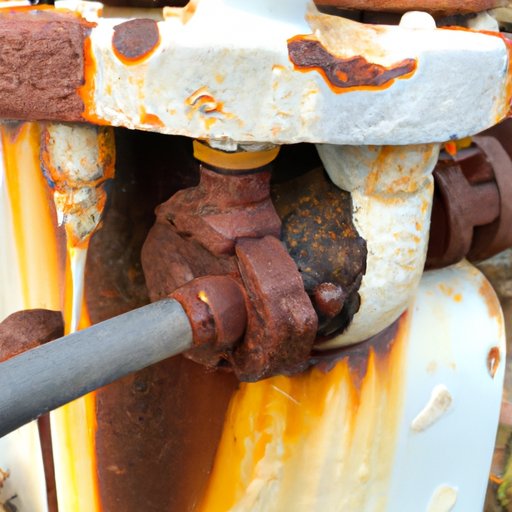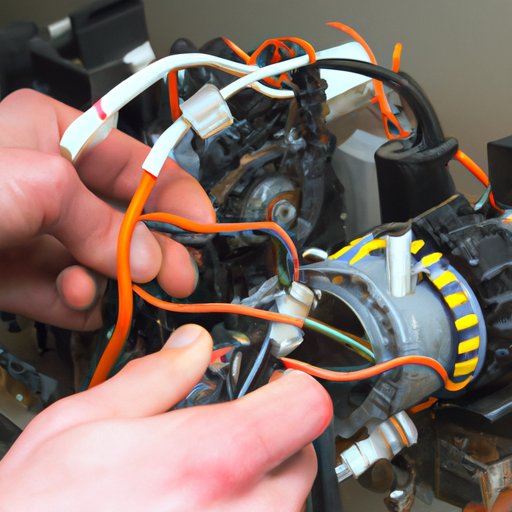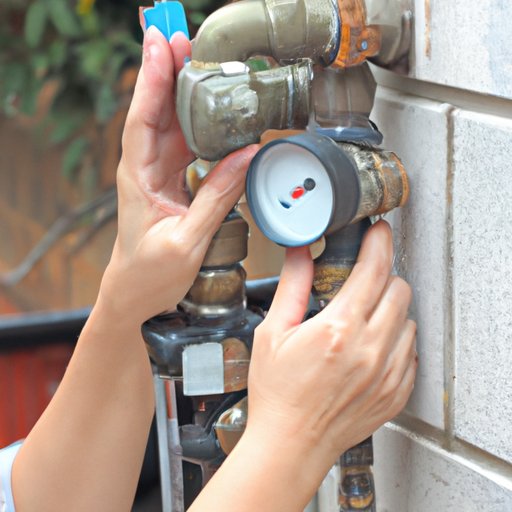Introduction
Having a reliable well pump is essential for keeping your home running smoothly. But what happens when you suspect your well pump is bad? Knowing how to tell if your well pump is bad can be an important skill when it comes to maintaining your home. In this article, we’ll explore how to tell if your well pump is bad by checking pressure gauge readings, listening for strange noises, looking for signs of corrosion or rust on the pump, testing electrical connections, and checking the water pressure in the house.
Check the Pressure Gauge Readings
The first step in determining if your well pump is bad is to check the pressure gauge readings. The pressure gauge is typically located on the side of the pump and will give you an indication of how much pressure is being generated by the pump. It should read between 30 and 50 psi (pounds per square inch). If the gauge is reading higher than that, then the pump may be overworking itself and could eventually fail.
When checking the pressure gauge readings, you should also pay attention to any fluctuations in the readings. If the readings are fluctuating wildly, then this could indicate that there is something wrong with the pump. If the readings remain steady, then the pump is likely working properly.
Listen for Strange Noises Coming from the Pump
Another way to tell if your well pump is bad is to listen for strange noises coming from the pump. This could include grinding, squealing, rattling, or humming noises. These noises are usually an indication that something is wrong with the pump and should be investigated further.
If you hear any unusual noises coming from your pump, you should turn off the power to the pump immediately and contact a professional for further inspection. They will be able to diagnose the problem and provide you with the necessary repairs.

Look for Signs of Corrosion or Rust on the Pump
Corrosion or rust on the exterior of the pump is another sign that something might be wrong with your well pump. You should inspect the pump for any signs of corrosion or rust, especially around the electrical connections. If you do find any corrosion or rust, then it’s best to contact a professional for further inspection and repairs.
Corrosion or rust on the outside of the pump can be caused by a variety of factors, such as exposure to moisture, dirt, or chemicals. It’s important to address any corrosion or rust issues as soon as possible, as they can cause damage to the pump and reduce its efficiency.

Test the Electrical Connections of the Pump
Once you’ve inspected the pump for any signs of corrosion or rust, the next step is to test the electrical connections of the pump. To do this, you’ll need a multimeter, which you can purchase at any hardware store. Once you have the multimeter, you should remove the cover of the pump and locate the two wires connected to the motor. Using the multimeter, you should measure the resistance of the two wires. The resistance should be between 0 and 5 ohms. If the resistance is higher than 5 ohms, then it could indicate that the connections are not secure and need to be repaired.

Check the Water Pressure in the House
The final step in determining whether or not your well pump is bad is to check the water pressure in the house. To do this, you can use a water pressure gauge, which can be purchased at any hardware store. You should attach the gauge to a faucet in the house and turn on the water. The water pressure should read between 40 and 60 psi. If the pressure is lower than that, then it could indicate that the pump is not functioning properly.
Conclusion
Now that you know how to tell if your well pump is bad, you’ll be better prepared to take action if you suspect something is wrong with your pump. To recap, you should check the pressure gauge readings, listen for strange noises, look for signs of corrosion or rust on the pump, test the electrical connections of the pump, and check the water pressure in the house. If you still have questions or concerns, it’s best to contact a professional for further assistance.
(Note: Is this article not meeting your expectations? Do you have knowledge or insights to share? Unlock new opportunities and expand your reach by joining our authors team. Click Registration to join us and share your expertise with our readers.)
